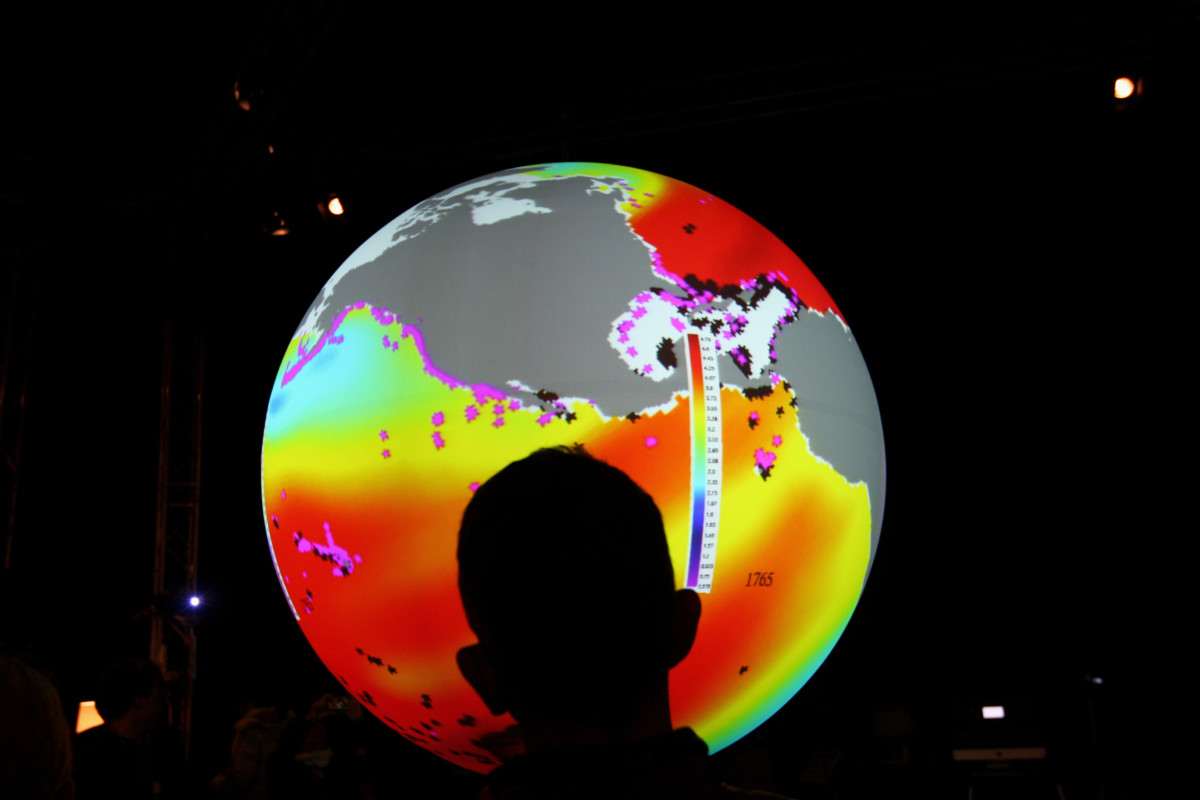Part of the Series
Planet or Profit
Honest, paywall-free news is rare. Please support our boldly independent journalism with a donation of any size.
The Northern Hemisphere’s summer is showing how far along the planet is with human-caused climate disruption, as record high temperatures are shattered and sweltering heat waves kill dozens of people.
Globally, June was Earth’s fifth-warmest ever recorded, according to the US National Oceanic and Atmospheric Administration’s (NOAA) National Centers for Environmental Information.
The same NOAA data also showed that the only warmer June months on record were those from the previous four years.
As the planet continues to warm, it is becoming clear that the heat it is bringing along with it the challenge of how to live and work safely.
Making Life Unbearable
A brief glance around the world gives one a view of how rapidly and how intensely the planet is warming as human-caused climate disruption continues apace.
In the US, 41 high-temperature records have already been set in July, and a recently published study in Nature Climate Change predicts that increasingly higher temperatures will cause an increase in suicide rates, and warns that as many as 26,000 people could commit suicide in the US by 2050. These deaths would be attributable to human-caused climate disruption generating increasingly hotter temperatures.
In May, dozens of people in Pakistan died from record-high temperatures.
In July, at least 70 deaths were attributed to a heat wave that swept across Canada’s Quebec Province.
At the time of this writing, a heat wave in Japan bringing record high temperatures had killed at least 65 people and caused another 22,000 to be taken to the hospital for heat stroke. The government there declared a natural disaster because of the extreme heat.
This unprecedented heat is causing myriad problems, especially for workers.
In the US, activists are working to push UPS to install air conditioning in their trucks, as numerous drivers have succumbed to heat stroke.
Recently, the United Farm Workers Foundation, Farmworker Justice, and the consumer advocacy group Public Citizen joined another 130 public health and environmental groups in pressuring the US Occupational Safety and Health Administration (OSHA) to require employers to do a better job of protecting workers from the heat.
“This is a public health issue. This is a justice issue. The people who feed us, who feed America, deserve strong protections from the effects of climate change,” Jeannie Economos, a project coordinator with the Farmworker Association of Florida, told InsideClimate News. “We’re calling on OSHA not to delay anymore.”
In India, government officials are now discussing how some cities will become unlivable if a solution to the ever-increasing warm temperatures isn’t found.
According to the Urban Climate Change Research Network, globally, the number of cities with summer high temperatures of at least 95 degrees Fahrenheit is expected to nearly triple by the year 2050.
We should expect these issues to deepen and spread further around the world as the planet warms, and life on a hotter planet becomes increasingly challenging and other heat-related health issues continue.
A recent study published by Harvard’s T.H. Chan School of Public Health found that high temperatures could even be bad for our brains. The study linked cognitive impairments to warmer temperatures, even among young, healthy populations.
Further underscoring this global issue is the fact that nighttime high temperatures are actually increasing faster than daytime high temperatures. This is a dangerous new phenomenon because it doesn’t give the body a chance to cool down during the nighttime, which makes the sick, elderly, younger children and people who work outside during the day particularly susceptible to the heat.
For many years now, heat waves have been killing more Americans than any other natural disaster annually, and this trend is expected to increase as human-caused climate disruption continues apace.
A terrifying moment. We appeal for your support.
In the last weeks, we have witnessed an authoritarian assault on communities in Minnesota and across the nation.
The need for truthful, grassroots reporting is urgent at this cataclysmic historical moment. Yet, Trump-aligned billionaires and other allies have taken over many legacy media outlets — the culmination of a decades-long campaign to place control of the narrative into the hands of the political right.
We refuse to let Trump’s blatant propaganda machine go unchecked. Untethered to corporate ownership or advertisers, Truthout remains fearless in our reporting and our determination to use journalism as a tool for justice.
But we need your help just to fund our basic expenses. Over 80 percent of Truthout’s funding comes from small individual donations from our community of readers, and over a third of our total budget is supported by recurring monthly donors.
Truthout has launched a fundraiser, and we have a goal to add 182 new monthly donors in the next 24 hours. Whether you can make a small monthly donation or a larger one-time gift, Truthout only works with your support.
